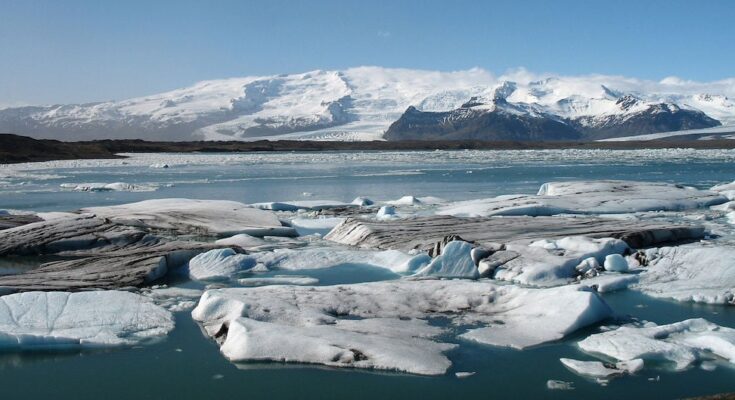
The Greek discovery of Iceland more than one thousand years prior to the Vikings is supported by evidence published recently in The Housman Society Journal.
Based on an essentially linguistic hypothesis of his own inspiration, Dr. Andrew Charles Breeze pens the latest attempt to shed light on the mystery that surrounds the exact location of the legendary Thule, the world’s northernmost land discovered by ancient Greek geographer, astronomer, and explorer Pytheas of Massalia around 300 BC.
The philology professor at the University of Pamplona, Spain, known for his expertise in historical linguistics, appears convinced that the “island with ice floes close to it” which took Pytheas six days to reach by sailing from the north of Britain, can now finally be acknowledged.
“Greeks not only reached India with Alexander but also discovered Iceland with Pytheas,” he recently told Greek Reporter as he relates his theory.
The debate over the Greek discovery of Iceland
Dr. Breeze compared the old legend of Thule to those of Atlantis or El Dorado.
Pytheas’ original account details his voyages from his hometown of Massalia (today’s Marseille) in southern France to Britain and beyond. Although well-known to ancient scholars, it was completely lost—most likely during the fires that destroyed the Library of Alexandria in Egypt.
This is why the scientific community has been struggling for centuries to match the northernmost destination of the famous traveler with an exact location, guided by the rare surviving quotations of his work in later writers such as Strabo, Plinius, and Diodorus of Sicily.
“They call this island Thule, and writers like Vergil and Tacitus and Juvenal use Thule rather vaguely, for somewhere at the end of the known world,” Breeze said.
“There have been centuries of argument on where Thule was,” Breeze explains. “Most people say Iceland; some, the Faroes; others, Norway, yet others, the Shetland Isles.”
He argues, however, that the key to solving the mystery is a linguistic approach to the matter and contends that the ancient name given to the island by Pytheas suffered scribal corruption through the centuries to the point that it became unintelligible.
“The trouble is that Thule—or Thyle—means nothing,” he points out. “Emend to Greek Thymele, by adding two letters between the two syllables of the word, and it makes sense. Thymele means ‘altar slab; altar’, and is a common word in ancient Greek.”
Mystery solved
In his paper, the professor supports the idea that “the term Thymele was suggested by the island’s south coast, with high and level cliffs of volcanic rock, seen as resembling a Greek temple’s thymele or altar…perhaps the one in the temple excavated after World War II at Marseille, where Pytheas came from.”
“His name Thymele, early on, lost a syllable through scribal error, and by the time of Vergil (d. 19 BC) and Strabo (active after 21 AD) had become Thyle or Thule,” he explains.

Did Greek Pytheas discover Iceland?
As he envisages Pytheas on his first sighting of Iceland, Breeze believes that “when Pytheas and his men saw the great mass of Iceland arising on the horizon, with clouds and mists rising from it, and perhaps columns of smoke and ash from Hekla and other volcanoes, he thought of the altar in a Greek temple, with fire on top and vapors rising from animals sacrificed there.”
“The scribes who copied his work then made mistakes,” Breeze says. “Letters were lost. The meaningless ‘Thule’ was the result.”
The paper also indicates that the case is strengthened upon learning that “ancient altars could be immense. The one at Pergamum was forty feet high; others at Parium (near the Hellespont) and Syracuse were said to be two hundred yards long.”

Breeze says he has already discussed the paper with other classicists and academics at English universities, who certainly thought the suggestion plausible.
“If the hypothesis is right, after more than twenty centuries, the Greeks can be recognized as Iceland’s first discoverers, a thousand years before the Vikings,” he concludes.
“The voyage of Pytheas for six days across the North Atlantic was quite as heroic as anything by Columbus,” he maintains. “Greeks can feel proud that it was they, and not the Vikings, who were the first to set foot on the soil of Iceland.”



